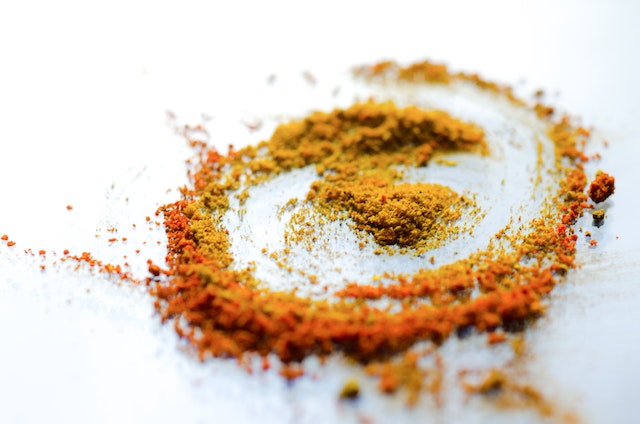What are the benefits of peanut butter
Peanut butter is one of the unprocessed foods, as it is made only from roasted peanuts, which are ground until it turns into a paste, but not all commercial products are natural, as there are types that contain sugar, vegetable oils, and trans fats, and peanut butter is preferred In adults and children alike, in addition to its delicious taste, there are many general benefits provided by peanut butter; Of which we mention the following:
They contain vitamins and minerals
Peanut butter contains many minerals; Including: magnesium, which is one of the essential elements for a healthy body; As it plays an important role in more than 300 chemical processes in the body, phosphorus, which helps build healthy bones and cells, and helps cells produce energy, in addition to zinc, which is an important element for body immunity, protein manufacture, and DNA formation, in addition to It contains copper, iron, manganese, and potassium.
Peanut butter also contains vitamins; Such as: vitamin B3, which is useful for the functions of digestion and nerves, as it helps in the production of energy, in addition to vitamin B6, which plays a role in more than 100 enzymatic reactions in the body, and is a necessary element for the health of the heart and the immune system, and in addition to that, peanut butter contains Folate, Vitamin B1, and Vitamin B5.
They contain antioxidants
Peanut butter is a rich source of antioxidants. Such as: p-Coumaric acid, in addition to containing the compound resveratrol, which has been associated with reducing the risk of heart disease and other chronic diseases in animals. Antioxidants are found in many foods, which play a role in reducing cell damage caused by free radicals. This is by neutralizing it.
They contain healthy fats
Peanut butter is rich in healthy fats. As half of the amount of fat in it consists of oleic acid (in English: Oleic acid); It is the healthy type of monounsaturated fat that is also found in large amounts in olive oil. Oleic acid is associated with many health benefits. Such as improving insulin sensitivity, and peanut butter also contains linoleic acid (in English: Linoleic acid); It is one of the types of omega-6 essential fatty acids found in many vegetable oils, and although it contains many calories, eating moderate amounts of peanut butter or peanuts in its whole form is a good option in weight loss systems.
It has a low glycemic index
Natural peanut butter has a low glycemic index; Whole peanuts have a glycemic index of 14, which makes them one of the foods with the lowest glycemic index. It should be noted here that the glycemic index (in English: Glycemic index) is a measure for foods, indicating the speed of their effect in raising blood glucose levels, as foods with a low glycemic index tend to raise blood glucose slowly and steadily, while foods with a high glycemic index lead to a slow and steady increase in blood glucose levels. High blood glucose levels rise rapidly, and a rapid rise in blood sugar levels is unhealthy.
For more information about peanut butter, you can read the article What is peanut butter.
Studies on the benefits of peanut butter
The following is an explanation of the results of some scientific studies on the benefits of peanut butter:
- A study published in the British Journal of Nutrition in 2013 indicated that eating peanut butter or the same peanuts for breakfast by women who suffer from obesity and are at risk of type 2 diabetes; Help regulate their blood glucose levels, as well as women who added nuts to breakfast Their blood sugar levels decreased And they felt more satiated than those who ate the same amount of carbohydrates without nuts for breakfast.
- Another study published in the journal JAMA in 2002 indicated that the benefit of eating large amounts of nuts and peanut butter is to reduce the risk of type 2 diabetes in women, and to avoid consuming large amounts of calories, it is recommended to eat nuts regularly as an alternative to refined grains, or Red or processed meat.
- A study published in the Journal of Breast Cancer Research and Treatment in 2014 indicated that the intake of vegetable protein, fat, peanut butter, or nuts by teenage girls; Reducing their risk of benign breast tumor (In English: Benign breast disease).
- A study published in Nutrition Research in 2013 indicated that the consumption of peanuts or peanut butter was associated with By losing weight, improving diet and blood lipid levels in children.
For more information about peanut butter for weight loss, you can read the article Benefits of Peanut Butter for Diet.
Peanut butter nutritional value
The following table shows the nutrients in a tablespoon of peanut butter:
| food item | Nutritional value |
|---|---|
| water | 0.189 milliliters |
| Calories | 95.5 calories |
| protein | 3.6 grams |
| Total fat | 8.18 grams |
| carbohydrates | 3.57 grams |
| Dietary fiber | 0.768 gr |
| sugars | 1.68 gr |
| calcium | 7.84 milligrams |
| Iron | 0.277 milligrams |
| magnesium | 27 milligrams |
| phosphorous | 54.2 milligrams |
| potassium | 90.2 milligrams |
| Sodium | 68.6 milligrams |
| zinc | 0.406 milligrams |
| copper | 0.067 milligrams |
| selenium | 0.656 µg |
| Vitamin B1 | 0.022 milligrams |
| Vitamin B2 | 0.031 milligrams |
| Vitamin B3 | 2.13 milligrams |
| Vitamin B6 | 0.071 milligrams |
| folate | 13.8 micrograms |
| Vitamin E | 1.46 milligrams |
| Vitamin K | 0.048 µg |
Disadvantages of peanut butter
Safety of peanut butter
Consuming small amounts of peanut butter is safe and does not cause any harm.
Contraindications of eating peanut butter
Here is a mention of some cases in which you should be careful when consuming peanut butter:
- Although peanut butter is very nutritious, it may contain different levels of aflatoxin. They are toxic compounds formed from certain types of mold, and aflatoxins are associated with an increased risk of liver cancer, but processing peanuts and converting them into peanut butter reduces aflatoxin levels by 89%, and to avoid exposure to toxicity due to aflatoxins, it is recommended to buy good types of nuts and butter Nuts, and avoid those that look moldy, or dull in color.
- Peanuts and other nuts are allergens, and people with nut allergies should avoid peanut butter and foods that contain nuts. Several symptoms appear on the allergic person; Which is represented in the following:
- Urticaria (in English: Hives).
- Skin redness or swelling.
- Tingling or itching in or around the mouth and throat.
- digestive problems; such as: diarrhea, stomach cramps, nausea, or vomiting.
- Throat stenosis.
- Shortness of breath and wheezing.
- Runny nose.
- Despite the nutritional benefits of peanut butter, it is rich in fat and calories. Two tablespoons of it contain at least a quarter of the recommended daily requirement for fat, some of which is saturated fat.
How to add peanut butter to the diet
Peanut butter can be made at home by mixing peanuts in a food processor until the mixture reaches the desired consistency. Peanut butter can be added to the diet by following the following recipes:
- Make a peanut butter and jam sandwich that contains whole fruit, low in sugar, and wholegrain bread.
- Spread the rice cake with peanut butter and place banana slices on top.
- Add a spoonful of nut butter to the smoothie to make it more saturated.
- Dip apple and pear slices in peanut butter.
- Mix peanut butter with yogurt or oatmeal.







0 Comments